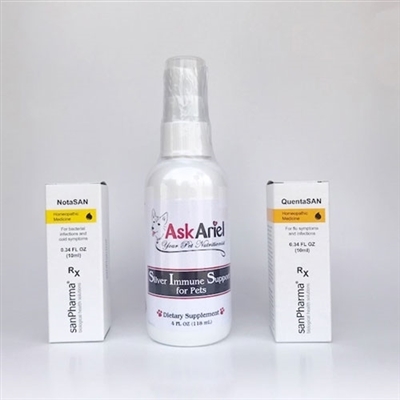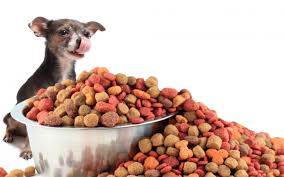Revised: 3/10/2024
Dogs can suffer from back pain just like we do. Intervertebral disc disease (IVDD) in dogs is when the cushioning “shock absorber” discs between the vertebrae in a dog's spinal column rupture or degenerate. IVDD has a higher incidence in breeds like Dachshunds, Cocker Spaniels and French Bulldogs. IVDD can cause back pain, loss of limb function and in severe cases, paralysis. IVDD can occur suddenly due to injury or trauma or it can progress more gradully, particularly in older dogs.
Along with conventional treatments such as medications, restricted activity and physical therapy, natural supplements can help dogs with IVDD. In particular, scientific studies have shown the benefits of resveratrol for cartilage and discs. Resveratrol was shown to have protective benefits in the degeneration of cartilage in the knees (1). Then scientists tested resveratrol on IVDD to see what benefits it could provide. Their research study found that resveratrol helped slow the progression of IVD degeneration (2) and had potential for the repair and regeneration of discs as well.
Where can you find resveratrol for dogs and what should you look for when choosing a brand? Ask Ariel’s Resveratrol For Dogs is made with Trans-Resveratrol from Japanese Knotweed, an antioxidant that combined with quercetin has a synergistic anti-inflammatory effect. Inflammation affects joint and spinal conditions, including IVDD. By reducing inflammation, this supplement can help alleviate pain and discomfort associated with IVDD.
What should you look for when choosing a brand of resveratrol for dogs? Look first for the source of resveratrol to ensure it is from Japanese knotweed rather than red wine. Be sure the brand shows third-party testing. GMP (good manufacturing practices) certification ensures that the resveratrol supplement meets quality standards and is free of contaminants. Check the additional ingredients and be sure the product is free of unnecessary fillers. Finally check the dosage as some products may offer very little dosage for the price.
(1) Elmali N, Baysal O, Harma A, et al. Effects of resveratrol in inflammatory arthritis. Inflammation. 2007;30:1–6. [PubMed]
(2) The Action of Resveratrol, a Phytoestrogen Found in Grapes, on the Intervertebral Disc. Spine. November 15, 2008 - Volume 33 - Issue 24 - p 2586-2595. Li, Xin, MD, PhD; Phillips, Frank M., MD; An, Howard S., MD; et al.
Author: Susan Blake Davis, Pet Health Nutritionist
Originally Published 8/16/2020
Revised and Updated: 3/10/2024





